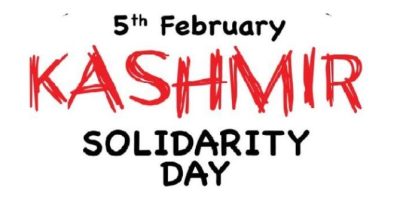“What is Wrong with Imran’s Video on X?”

By: Qamar Bashir
For the last few days, there has been a lot of fervor, talks, fears, and intimidations, with law enforcement agencies resorting to grilling Rauf Hassan, Omer Ayub Khan, and later incarcerated Imran Khan, on account of a video uploaded on his personal account.
The documentary is knitted against the background of the Hamoodur Rehman Commission Report on the debacle of East Pakistan and the dashed aspirations of millions of people as they watched Pakistan shatter before their very eyes, followed by the laying down of arms by the Pakistan army and the imprisonment of around a hundred thousand Pakistani brave soldiers by India. The nation went through a period of great despair, sorrow, and agony but gradually recovered from its wounds.
Examining the scenario where a leader of Pakistan’s most popular party, PTI, terms the military dictator who ordered the surrender in 1971 and General A.K. Niazi, who signed the surrender document, as traitors, and drawing a parallel between the events of 1971—triggered by the denial of power to the Awami League, which had won the election—and the 2024 election scenario where PTI claims to have won elections but was denied power, raises several points of analysis requiring a deep dive into historical context and contemporary political dynamics.
I read the Hamoodur Rehman Commission’s report in Dawn, which was made public after carefully curtailing the most sensitive parts around the late 80s. The report was very incisive and critical and had a lot of emotions woven into it. One part of the report which pained me immensely was the mention that nowhere in Muslim history had so many Muslim soldiers been made prisoners. In another part, which again hurt me a lot, the report said it would have been much more honorable for the Pakistan army to embrace shahadat rather than surrendering to the enemy, and that too in such a large number.
The report vividly painted the scenario of December 16, 1971, when Lieutenant General A.A.K. Niazi of Pakistan signed the Instrument of Surrender, leading to the creation of Bangladesh. The surrender was viewed by many in Pakistan as a significant national humiliation. General Niazi and others were accused of incompetence and cowardice. The Hamoodur Rahman Commission, set up to investigate the defeat, recommended action against those responsible, but they were not formally charged with either betrayal or treachery.
However, the question of whether a surrender through a proper channel by an army or the signing of a surrender document by a General constitutes an act of treachery or treason or mere incompetence of both political and military leadership is complex and situational, demanding a look at historical examples and perspectives to reach some kind of conclusion.
On May 7, 1945, General Alfred Jodl signed the unconditional surrender of all German forces to the Allies, which deeply disappointed Germans who felt betrayed, though it was seen as a necessary step to end the conflict. General Jodl was later executed at Nuremberg, but not for the act of surrender. Similarly, on April 9, 1865, General Robert E. Lee surrendered the Army of Northern Virginia to Union General Ulysses S. Grant at Appomattox Court House, ending the American Civil War. Lee’s surrender was viewed as honorable and aimed at avoiding further bloodshed, and he was respected for his decision. In contrast, on February 15, 1942, British Lieutenant General Arthur Percival’s surrender of Singapore to Japanese forces was one of the largest British-led surrenders and was seen by some as necessary to avoid massacre, though others criticized it as a failure of leadership. Percival faced criticism but was not tried for treachery.
These examples let us reach a simplistic understanding that a surrender to save lives is viewed as pragmatic and surrender without exhausting all options may be termed as incompetence.
The surrender without exhausting all options can be seen as betrayal with the caveat that those in the field who face the enemy directly are less culpable than those who ordered the surrender. Similarly, the treatment of officers who surrender can vary significantly: some are prosecuted, others reintegrated into society, and some celebrated for their pragmatism.
As per multiple military and strategic commentators, the decision to surrender in 1971 was influenced by military and political circumstances, including overwhelming opposition forces and an untenable situation for Pakistani troops, and secondly to the political events that led to the rebellion in East Pakistan were masterminded by Mujeeb ur Rehman and his Awami League, which had won the 1970 general elections but were denied power, leading to widespread unrest and eventually the war of independence. Therefore, unlike the troops on the border, the failure to transfer power to the elected representatives of East Pakistan is often cited as a significant factor leading to the 1971 conflict and the eventual secession of Bangladesh.
In 1971, the distinction between treachery or treason and mere incompetence lies in the intent and actions of military and political leaders. Treachery or treason would involve deliberate collaboration with the enemy, acts of sabotage, or betrayal of oaths for personal gain. Conversely, incompetence would encompass poor strategic decisions, underestimating the enemy, logistical failures, and inadequate political leadership.
The Hamoodur Rahman Commission Report criticized the military and political leadership for incompetence and mismanagement but did not label their actions as treasonous, recognizing the complexity of the wartime situation. General A.A.K. Niazi, for example, faced accusations of incompetence rather than treason for his leadership failures. The political decision to deny power to the Awami League after the 1970 elections was seen as a miscalculation rather than treachery. Thus, while treachery involves intentional harm, incompetence is marked by poor decision-making and leadership under pressure.
While PTI’s demand for respecting electoral outcomes to ensure democratic stability carries significant weight, each situation must be evaluated on its unique circumstances and merits.
Comparing the 2024 election scenario to the events of 1971 may serve a political narrative but does not fully account for the distinct contexts of military conflict and electoral politics. Therefore, while it may be politically expedient for the PTI to draw such comparisons, it is essential to approach these claims with a nuanced understanding of historical and contemporary realities.
By: Qamar Bashir
Former Press Secretary to the President
Former Press Minister to the Embassy of Pakistan to France
Former MD, SRBC
Related News

Investing in Tomorrow: How Uzbekistan is transforming tts youth into an engine of national progress
By: Adam Saud Future of any country lies in the destiny of its youth. ThereRead More

Kashmir Solidarity Day and an Unfulfilled Right
by Muhammad Mohsin Iqbal Conflicts among human societies are as old as civilisation itself. DifferencesRead More


Comments are Closed